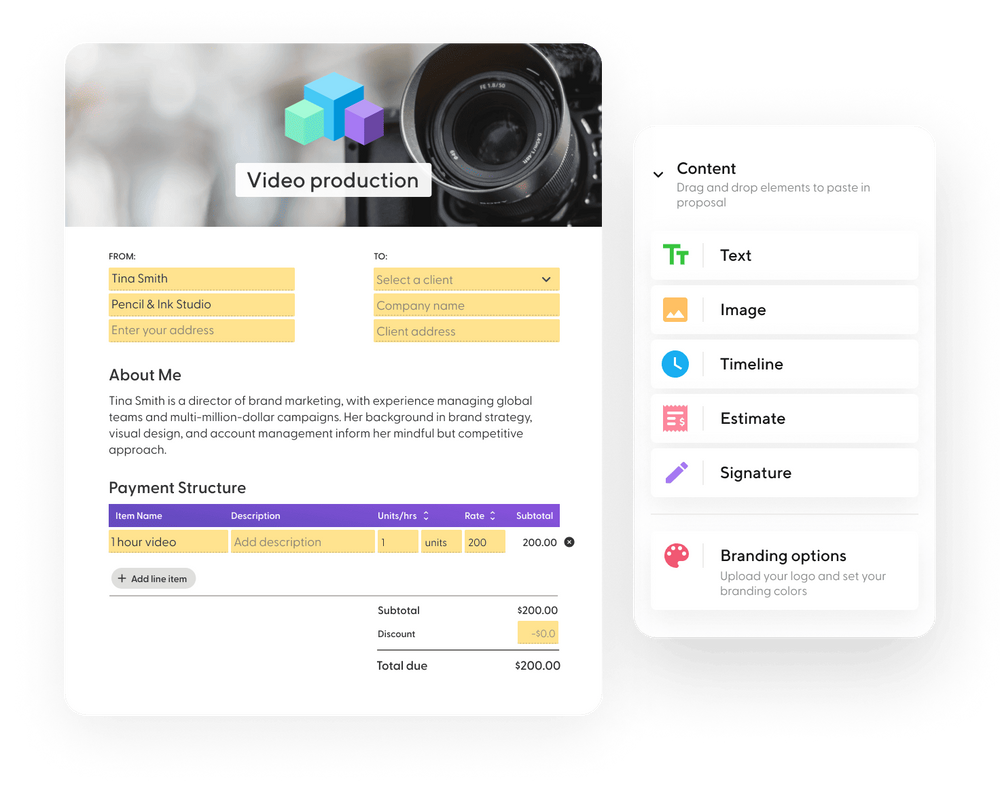Whether you're new to the freelance lifestyle or you've been trying your hand at it for a while, finding work can feel tedious and tiresome when you don't know where to look. The truth is that a lot of people pursuing freelance careers give up before they find the perfect pool of projects.
Regardless of your specific expertise and the style of work you want to pursue as a freelancer, finding jobs can be a little tricky. Don't fret, though, because I’m here to let you know a few tips that could save you time and help you get the ball rolling when it comes to seeking out job opportunities in your pursuit of independent contracting.
Finding jobs is only part of the experience, and knowing where to look and how to set yourself up for success can make all the difference in turning freelance into a part-time or full-time occupation.
Places to find freelance work
While every freelancer has their favorites, there are certain avenues and ways to get new clients that are always available. Sometimes the first step to getting your business off the ground is learning about all those opportunity zones. These are the primary ones to consider for your strategy.
Social media
Now, social media platforms have their ups and downs. They each come with a little bit of negativity and can be a waste of time if not used correctly. When you're piecing together your “why I'm right for the job” speech, it's important that you use your social media accounts to your benefit. You can utilize them to network with your current friends and family, and you can use the platforms to sell yourself to potential clients around the globe.
Social media is a gateway for communication. Whether you decide to create a new account on your favorite platform that's solely used for business, or you use your personal account, you can turn your social media usage into a paying gig. I'm not talking about becoming an influencer per se, but I am talking about marketing yourself.
Platforms such as Instagram and Facebook allow you to get as creative as you want with your postings, so long as you're not sharing anything super inappropriate. You can use this to your advantage by posting about your services, sharing pictures of you working on projects, and adding in little personal touches that show off how awesome you are as a person. Some clients love to see that there's a real person functioning behind the screen.
One great tip is to interact with other accounts. Don't be afraid to send in a pitch to a business you see an opportunity with. A lot of brands routinely review online proposals and will hire freelancers that have sent in an idea on how they could help them grow. If you're actively interacting with the content they post, you're more likely to be noticed, and if they have a link for their email, don't be afraid to try pitching your ideas and offering your services.
Your network
This falls right in line with social media but could also be used outside of the content flooding platforms. From crafting your own website to posting an update to your LinkedIn account, marketing yourself is all about networking. You can find some pretty nifty groups and forums online that allow you to connect with other freelancers and businesses that are actively seeking out ways to grow their freelancing network.
It may take a little time to sort out who's worth your time and who isn't, but creating these relationships can help you stay in somebody's mind should they see a job that suits your niche. Sometimes clients like to hire groups of freelancers for larger projects, and if you know a freelancer in the market that you continue to encourage or check up with, they might reach out to you if they're in line to get the gig and need an extra set of eyes and hands for the project.
Additionally, utilize your relationships with friends and family. Let them know about the services you're offering and see if they have any small projects you could work on that you can use for portfolio material. This is a great way to make a little cash working for somebody you know and like.
Remember, anyone from your social or professional networks can become your freelancing client. It helps to let your friends and relatives know that you've launched into a freelance lifestyle. Share your skills on social media outlets like Facebook and Twitter, and be sure to join LinkedIn.
You can also build a good portfolio of freelance work by volunteering for non-profits. You'll build professional experience and get your name on public works. PLUS, you'll feel good about helping others.
Online job boards and freelancing platforms
While platforms like Upwork and Fiverr take a large portion of your earnings away, they're not the only places you can find gigs. There are many freelancer platforms, and while finding the perfect fit is sort of like finding the right foot for Cinderella's slipper, it can be done. Plenty of platforms will act as the hosting site and take a lower percentage from your pay than mainstream websites.
Treat it like you're shopping for a new car and test drive many different models to see which platform works best for you. Some job boards will focus entirely on one niche, and if it's specific to what you're looking for it may work, but others will offer an array of categories and jobs to bring in more clients. This works great if you're able to work on various types of projects.
Industry groups
You'll increase your odds of landing a freelancing gig by joining industry groups. The local Chamber of Commerce is always a great way to meet others face to face.
Most Chambers also host luncheons on a weekly or monthly basis. You'll need to spring for lunch (they're generally affordable) but keep the receipt because you can write it off as a business expense. Chamber luncheons regularly have a professional speaker, so you'll get to broaden your skills and learn new industry jargon as well.
There are thousands of professional / industry organizations out there. Just remember that a freelancers’ club will be a chance to meet your competition, not clients. You'll be better off spending membership fees with a club whose members you're interested in working for, although there is some merit to networking with freelancers who could become collaborators as well.
It does take time to build relationships and trust with potential leads through clubs. Joining the group isn't enough. You'll need to show up at the events, participate in conversations, and offer help to members where you can. First impressions matter, so be sure to dress for success and speak up!
A personal brand and online presence
Brand-building is critical for any business, small or large. Clients trust people they are familiar with. Creating a consistent, trustworthy brand is how you let them become familiar with you enough to leap from being followers to clients.
It starts with regularly posting content through each social media profile. Share tips about your field, insights into your niche, and so on, all with a well-curated, brand-forward voice. The goal is to appeal to your target audience of potential clients (like small business owners in a particular industry) while positioning yourself as a helpful expert in your field. For effective content-driven social media marketing, consistency is key, so create a recurring to-do list task and maintain a posting schedule.
The more visible you are online, the more likely clients are to find your site and recognize your credibility. Post blogs on your own site, and build a presence on other sites too. Try guest posting on well-established and respected blog sites, especially those in your industry. Post YouTube videos sharing your expertise too, like answering questions about your field or offering tips from your wealth of experience.
Another way to do this is with an email newsletter. Consider your target audience of potential clients and what they might want to know within your area of expertise. Then launch an email newsletter that gives them what they want.
Grow your email list by marketing it on social media and your site. Potential clients on your subscriber list will get to know you and develop trust in you as an expert, giving them a reason to hire you.
Cold pitches
If you want a simple and straightforward way of getting freelance work, cold pitching is the way to go. But you'll need to have some thick skin and the ability to take rejection with class and a smile. After all, these prospective clients aren't looking for your services. They might not even know that a service like yours exists or that they need it!
Cold pitching involves contacting companies, entrepreneurs, or even bloggers to let them know how you can help them. It sounds a bit tricky, especially for new freelancers, but it's doable.
To get started, you need to identify the business that you want to pitch. You may have noticed that a client's website is outdated, that they don't have a robust presence online, and you believe your freelance services help. Create a quick list of URLs and phone numbers or email addresses.
Once you have a list of the businesses you want to pitch, the key to cold pitching is to find the right contact person. Be sure you're talking to the decision-maker. You'll need to explain clearly:
- Who you are
- How and where you heard about them
- How you can help them
- Possibly why your freelance service is better than your competitors’
Remember to move forward thoughtfully. You'd never want to bash a website that was built and maintained by the owner's grandson or make them question their staff's abilities.
Keep in mind that this is a numbers game as well. A great ratio of cold pitches to contracts is 10:1. In other words, you'll make ten pitches to get one job.
Existing clients
Most freelancers overlook this but your existing paying clients are great resources for new leads. Email them letting them know you have availability for a new project and inviting them to tell anyone they know who’s looking for services like yours.
These clients already know how talented you are so their recommendations will be golden. Don’t assume they would’ve sent someone your way if they knew someone who needed your help.
Speaking engagements
You have more knowledge to share than you think, so get on the teaching circuit. Look for conferences, webinars, and other knowledge-sharing opportunities where you can present.
This builds your credibility as a professional while also putting you in front of a new audience. It’s ideal if you’re speaking to potential clients like business owners. Market these presentations on your site and your social media too.
Tips for securing more client work
All of the resources above are viable places to get amazing new clients, but how do you make the most of them? Keep these tips in mind along the way.
Always be building a portfolio
If you’re new to freelancing, develop a few samples for your portfolio. Obviously, free work won’t pay the bills, but when moving into a new niche or trying to get your foot in the door, having samples is a must. Prove you can create quality content by creating a sample you admire, like a landing page for an imaginary business or a blog post.
After you’ve got some content to share, use social media and a portfolio website (there are many free ones, such as JournoPortfolio) to showcase your talents. Optimizing these pages with frequent posts, tags, and SEO techniques can drive traffic toward your site/pages to ensure you get noticed.
Remember, your portfolio is proof of what you can do. If you’re advertising yourself as an editor, make sure the grammar is perfect! If you do graphic design, create a web page as another sample for your body of work.
Track client patterns
Figuring out which clients are worth your time and which clients will be more of a headache will not only help you when it comes to setting your rates, but it'll help you discover potential long-term projects. If you look at the reviews freelancers have left previous clients (a common feature on freelance platforms), dig through their websites, and look over how they talk about previous freelancers they've worked with, you can typically decipher if they'll be a client you would enjoy working for.
Not only does this help you review their buying patterns, but it prepares you for potential work with them. You may find a client that buys weekly on a platform or one that buys monthly, and when you note their habits you can begin to slowly create a guide for yourself with potential work.
Create daily habits
Getting used to pitching and promoting your services takes some time; there's no question about it. However, when you plan a specific time each day to sit down and do an online search for new jobs and begin to outline a quick pitch every day, you'll get used to marketing yourself.
You could choose to do this for an hour first thing in the morning, or use it as a break from current projects you're working on. The online search will help you weed out decent jobs from poor ones, and pitching to potential clients will help you maneuver through clients you might be able to land a gig with.
Building this daily habit will also help you get accustomed to figuring out which websites have the most opportunities for your niche. Over time you'll begin to notice your client base growing, and be able to find comfort in your freelance work.
Invest in targeted ads
Free social media posts go a long way toward building your client base, but paid ads can take it over the top. As long as you can afford an investment, many social media channels offer ways to purchase and design ads or boosted posts to give you more visibility.
Of course, your ads need to be well-crafted, but they must be well-targeted too. For instance, target it toward people with “business owner” as their job title, people in particular industries, people in your city, or other essential demographics.
Create a cross-marketing web
You should never only have one online marketing strategy. Continuously post videos, publish blogs, send out email newsletters, or use other digital marketing techniques. Those marketing efforts will be more effective when you cross-market yourself by sharing them on social media too.
This is great content for social media. It gives followers (read: potential clients) insights into what you’re up to lately while giving you more distance out of each video or blog you create.
Build a catalog of reviews and recommendations
Finding clients online doesn’t just involve getting in front of those clients. You have to impress them too. One major way to do this is with spectacular reviews or recommendations.
A business Facebook page lets users leave reviews on your page, and people can do the same on LinkedIn in the form of recommendations. There are many strategies for getting more reviews, but it comes down to customer service. Give each client a great experience and then ask them to leave reviews or recommendations.
Boost your site’s SEO
SEO, or search engine optimization, is a core part of digital marketing. It’s a collection of strategies to make your site show up more often in relevant Google search results. The more you appear in search results, the more potential clients will land on your site.
While posting on social media, include links to your site often. This drives engaged traffic to the site, boosting certain stats like organic traffic and average on-page time. When those stats are more impressive, Google sees the site as more reputable and this boosts your search performance.
Choose your work environment wisely
We all have to work somewhere and staying home could shortchange you. In fact, as you start and build your freelancing career, you may pick up freelancing jobs from people you meet in coworking groups or working in coffee shops. Striking up chats with other people at those coffee shops and coworking spaces could lead to a relationship with a new client.
Be prepared to seize opportunities
Sometimes our greatest opportunities come when we aren’t looking. You never know who you’ll meet at the grocery store, so be prepared at all times. Prepare an elevator pitch about what you do and have business cards in reach wherever you go.
Engage with small business groups
Local businesses are terrific clients for freelance work. There’s a connection because you’re both entrepreneurs and they’re often easier to work with than large corporations.
To reach them, get involved with small business groups in your area. Whether these groups focus on informational sessions or networking, you’re bonding with the right crowd.
In the long run, finding work takes time. It takes patience and a lot of figuring things out for your specific needs. Whatever your budget may be, whatever your specialty skill set may consist of, there are plenty of freelance jobs on the market. Be diligent in your hunt and keep moving even when you get a rejection here and there. Clients are always seeking new talent.




